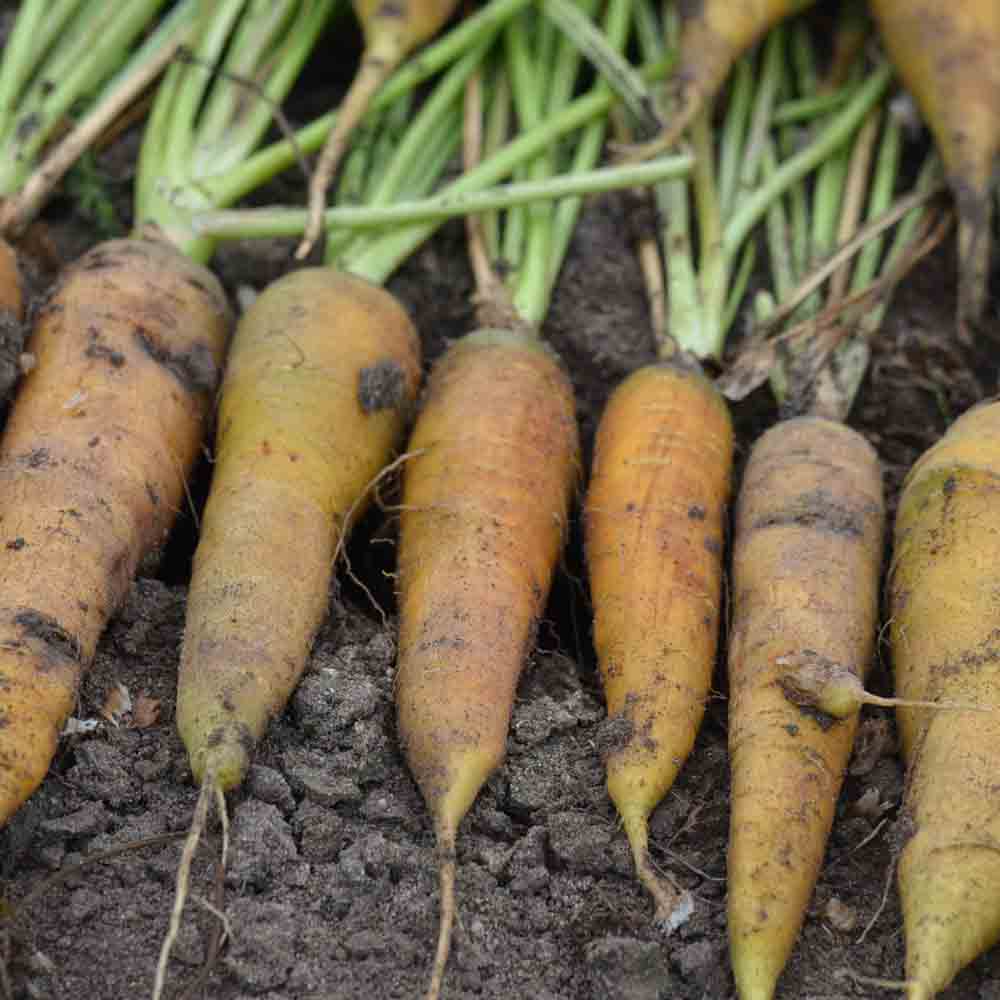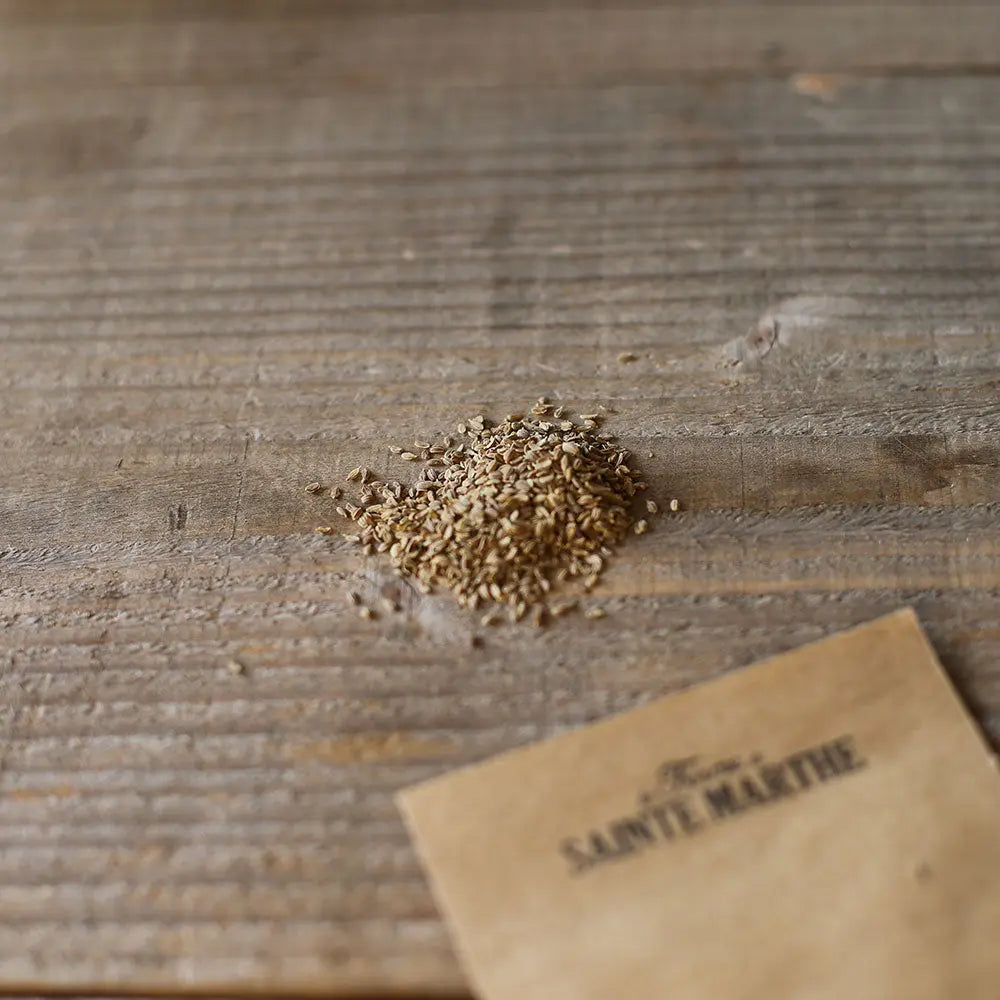YELLOW CARROT FROM DOUBS AB
Daucus carota
The yellow Doubs carrot is a productive and sweet variety that keeps well over winter. Formerly used as fodder, this yellow-fleshed carrot now reveals its delicious qualities as a vegetable.
Successfully sowing yellow Doubs carrots
Sowing: from February to June. Harvest: from June to November.
Prepare the seedbed very well: refine the soil well, water the soil, sow thinly in rows 25 to 30 cm apart, in a sunny location and cover with a mixture of very fine soil and sand for a few millimeters. Water with a light rain. Place a P17 type fleece over the seedbed to keep the soil moist and prevent the surface from drying out, keep moist until the seedlings develop.
Thin out once to 4 or 5 leaves at 2 or 3 cm then to 7/8 cm.
Hoe and weed regularly. Water during dry periods.
Good pairings with carrots
You can combine your carrot crops with radishes, which means you don't have to thin out the carrot row several times, and radishes also keep red spider mites away.
Near your carrot crop you can grow onions, garlic or even leeks, they will be beneficial to the carrot by repelling the fly.
Preserving carrots
Let your carrots dry for 1 to 2 days on the ground, cut the leaves off at the root collar, and clean them without washing them. When they are dry, place them in sand in the cellar.
Enemies of the carrot
The main pest of carrots is the carrot fly. The larvae of this fly tunnel into the roots, working their way down to the tip. The heaviest infestations occur in July/August.
The foliage of affected carrots turns yellow and wilted. The best way to combat carrot flies is through prevention, using the right combinations of tansy and lavender decoctions, as well as applying an insect repellent.
Root aphids can also cause significant damage, which can be controlled with a treatment based on nettle manure.









